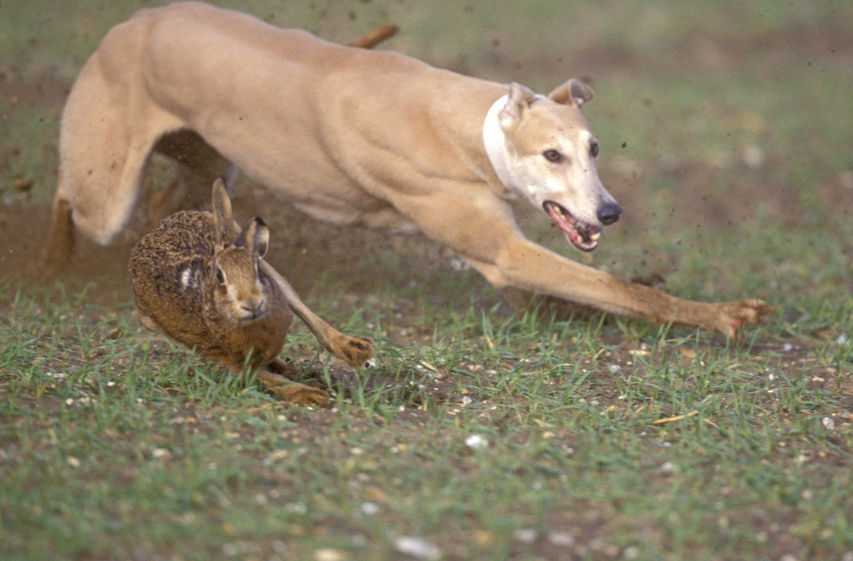
Farmers are often targeted repeatedly by hare-coursing gangs, a concerning new survey says, with many having to spend thousands of pounds to repair the damage caused.
Troubling new insights into the prevalence and impacts of hare coursing in the countryside have been provided by farming families.
More than 300 people took part in the survey by the Yorkshire Agricultural Society (YAS), with the findings showing the prevalence of the crime in the county.
Results show that farmers face a barrage of abuse from brazen criminals, with many forced to fork out huge costs to repair damage caused.
The highest number of hare coursing incidents were reported from farmers in North Yorkshire and East Yorkshire.
However, evidence of the crime was shared from as far afield as Aberdeenshire, Gloucestershire, Somerset and Northern Ireland.
In most cases the crime is a reoccurring problem on the same farms. The survey found that in 82% of cases the same farm had been targeted at least three times since the start of last year.
It also provides troubling insights into the confidence farmers have in the police. In more than one in four hare coursing cases (29%) the farmer did not call the police.
The most common reason for not doing so was that the farmer did not think the police would respond in a timely fashion.
When police were called, their response was rated as satisfactory by just 18 percent of farmers.
Farmers reported inconsistent responses when reporting the crime. Most of the time (87%), the police call handler confirmed that officers were being dispatched to the scene, but 88% failed to offer their estimated time of arrival.
When an estimated time of arrival was given, officers rarely attended within the given timeframe (28 percent).
The importance of tackling hare coursing is clear for farming families’ well-being and the profitability of their businesses, the survey shows.
In almost half of all cases (48%) farmers were either threatened or verbally assaulted, with one respondent saying they had been physically attacked.
Overwhelmingly, hare coursing results in criminal damage (86% of cases). Crop damage was the most widely reported (45%), followed by damaged fences and hedges (11%).
There were also reports of sheep being killed and livestock being left to escape onto highways.
Farmers are doing what they can to deter hare coursing - most (81%) said they had taken measures such as installing extra gates and security cameras.
Some farmers said they had created earth banks and ditches to keep criminals out of fields, with all of this coming at a great cost.
One in five said they had spent at least £5,000 on repairing damage or taking preventative action in the last three years. For 7% of farmers, this bill has exceeded £10,000.
More than half (54 percent) of farmers who responded to the survey said they had raised the issue with the police or their MP.
Charles Mills, a farmer near York and show director of the Great Yorkshire Show, has experienced hare coursing on his farm for at least 35 years.
"Farming families are paying a heavy price, both in terms of their sense of safety and wellbeing being compromised, and the costs of repairing damage and installing deterrents.
"The survey results tell me that hare coursing is not being driven out of the countryside anywhere near effectively enough," Mr Mills said.
The Yorkshire Agricultural Society has shared the survey findings to add to calls for a more robust response to hare coursing.
It has written to MPs and Police and Crime Commissioners, Defra, the Home Office, the National Police Chiefs Council and the National Rural Crime Network.
The findings have also been shared with the Country Land and Business Association (CLA) and the NFU to help inform UK-wide efforts by countryside groups to secure legislative change.
NFU regional director Adam Bedford said: "The NFU has highlighted to government how farming families suffer emotionally, mentally and financially from increasing levels of hare coursing.
"We are encouraged by the government’s announcement in the Queen’s Speech that they will introduce laws to crack down on this shameful crime.
"But we are eager to see the detail of their plans and understand how we can continue to work with them and the police to secure the best possible outcome."
